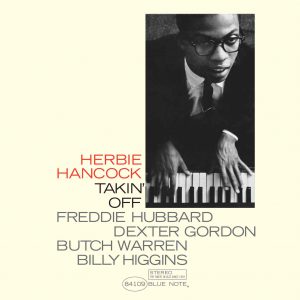 Jazz Corner of the World (Encore)
Jazz Corner of the World (Encore)
Mondays at 6:00pm
Herbie Hancock’s Birthday
Join host Craig Kessler as he celebrates the 85th birthday of the legendary Herbie Hancock by spinning a tasty variety of his music, including some classic charts for Blue Note Records, some work with his group Mwandishi, recordings for Columbia, Verve, and so much more!
Wednesday Night Special
Wednesdays at 6:00pm
Vivian Shanley Quartet at First Friday Jazz
April is Jazz Appreciation Month, when we celebrate talented student jazz performers. This week, we feature the Vivian Shanley Quartet at First Friday Jazz. Vivian Shanley was already a first-call bass player before graduating high school, and is now a rising star as she finishes her undergrad studies.
 Jazz Night In America
Jazz Night In America
Thursdays at 11:00pm
Oran Etkin’s Timbalooloo
Christian McBride introduces us to clarinetist and saxophonist Oran Etkin, who forges musical connections across Brazil, Zimbabwe, Eastern Europe, and beyond – and brings instruments to life through his playful and imaginative Timbalooloo program for children.
Jazz Corner of the World
Saturdays from 12:00 noon to 4:00pm
Sunnyside Records, Part 3
Craig continues his exploration of the top-notch Sunnyside record label, founded in 1982 and operated by Francois Zalacain. We’ll hear a variety of diverse selections from premier jazz artists, such as Gerald Cleaver, Vinicius Cantuaria, Denny Zeitlin, Jamie Baum, Eddie Higgins, Aaron Goldberg, Diego Barber, and a host of others.
KCCK’s Midnight CD
KCCK features a new album every night, played from start-to-finish.
Refuge by Mitch Towne on Monday; Nitty Gritty by Russ Spiegel on Tuesday; Square One by The Empress on Wednesday; Gratitude by Sharel Cassity on Thursday; California Trap by Andrew Duncanson on Friday; Family by Southern Avenue on Saturday; Waltz for Eli by Jonah David on Sunday.
 Hey, Jazz fans! Be sure to tune in this week as we celebrate the birthdays of trumpeter Shorty Rogers, saxmen Gene Ammons and Leo Parker, bassists Richard Davis, Gene Cherico and Buster Williams, guitarist Jeff Golub, flutist Herbie Mann, pianists Pete Malinverni, drummer Danny Gottlieb and more.
Hey, Jazz fans! Be sure to tune in this week as we celebrate the birthdays of trumpeter Shorty Rogers, saxmen Gene Ammons and Leo Parker, bassists Richard Davis, Gene Cherico and Buster Williams, guitarist Jeff Golub, flutist Herbie Mann, pianists Pete Malinverni, drummer Danny Gottlieb and more.
 Jazz Corner of the World (Encore)
Jazz Corner of the World (Encore)
 Jazz Night In America
Jazz Night In America 

